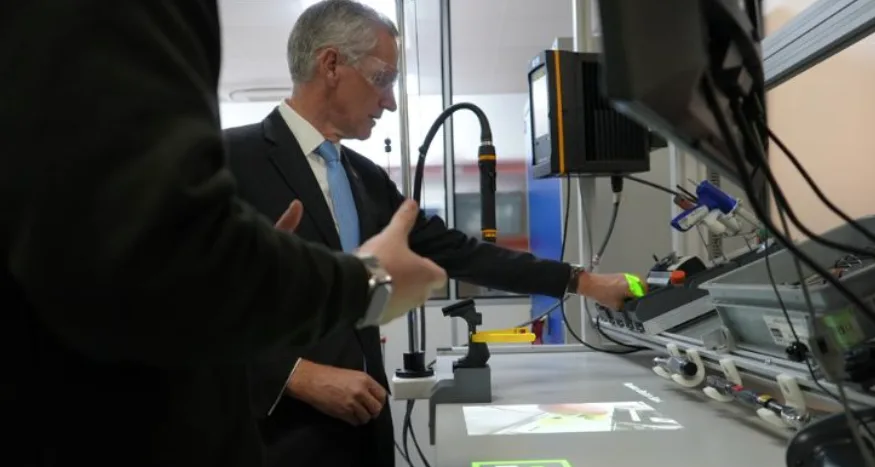West Midlands Set to Lead the UK's Aviation Revolution

By Anushka Malhotra
1 minute 24 seconds
Growth
Share:
Quick Read: The UK Civil Aviation Authority (CAA) highlights the West Midlands as a key player in the nation's aviation future, recognising its aerospace expertise and innovative efforts in drone technology.
The West Midlands is emerging as a critical hub in the UK's evolving aviation sector, following a recent roundtable discussion hosted by Sir Stephen Hillier, Chair of the UK Civil Aviation Authority (CAA). During the event, Hillier acknowledged the region's significant contributions to the upcoming aviation revolution, particularly in the safe integration of drone technology into urban areas.

Credit: UK Civil Aviation Authority (CAA)
The meeting, held on 26 September, brought together leading aerospace companies from across the Midlands, underscoring the region's robust aerospace heritage. The Midlands Aerospace Alliance, one of the world’s largest aerospace networks, was praised for its ongoing work in advancing drone usage, thanks to its collaboration with local companies that manufacture a variety of aircraft components and provide essential services to the aerospace industry.
“Aviation is changing like never before, and the West Midlands can rely on its rich aerospace history to be at the forefront of this new revolution”
said Hillier during a tour of Collins Aerospace’s Actuation Systems facility in Wolverhampton. The tour also showcased the company's advanced training facilities that use augmented reality technology and offered a chance to meet apprentices working on next-generation innovations.
In addition to supporting the region’s aerospace industry, the Drone Ready Cities project—led by the Midlands Aerospace Alliance and Coventry City Council—is laying the groundwork for the expansion of drone usage across the UK. The initiative is backed by funding from the Department for Science, Innovation and Technology (DSIT) via the Regulators’ Pioneer Fund.
The potential of drones is already becoming a reality, with trials for transporting medical supplies, such as blood samples, receiving airspace approval in London. As these technologies develop, industry leaders emphasise the need for ongoing collaboration.
“It’s vital that supply chain companies can communicate their priorities and challenges to key aviation stakeholders,”
said Andrew Mair, Chief Executive of the Midlands Aerospace Alliance, emphasising the importance of industry-wide partnerships.
With its aerospace expertise and forward-thinking initiatives, the West Midlands is positioned to play a central role in the UK’s aviation transformation.

Proudly Backed By Our Patrons














